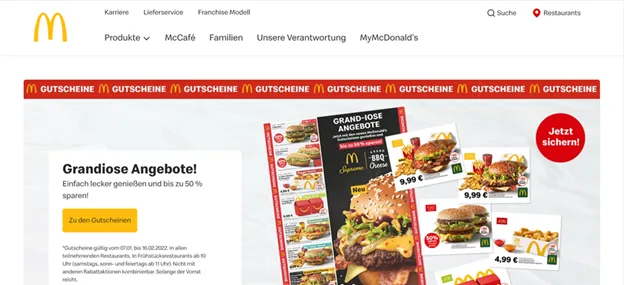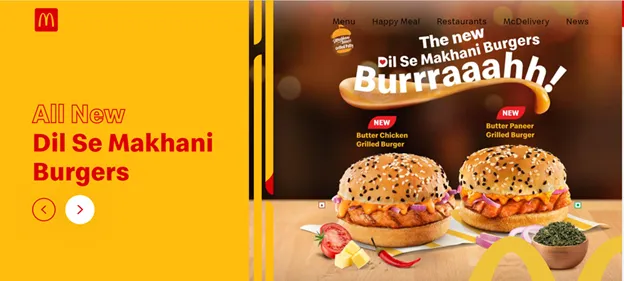Uncovering Regional Commanalities for Optimization & Personalization Success

McDonalds is an example of how using market research to uncover regional commonalities offers more optimized & personalized experiences for customers, resulting in increased sales. This type of approach when applied to both businesses offline & online presence has become more important than ever with our current digital first focus, removing previous barriers that brick-and-mortar (offline presence only) businesses had with their market penetration efforts.
With now most, if not all, businesses having an online presence, businesses have significantly broader customer reach. This means there are more opportunities for businesses to grow nationally & internationally, but also on the flip side this brings increased competition from businesses on the other side of the world. This has put greater pressure on businesses to stand out to customers – one way to do this is to cater messaging, user experience & products/services to different regions & cultures, both nationally & internationally (personalize & optimize experiences).
So What Was it That McDonalds Did So Well?
McDonalds adopted a two-pronged strategic approach, standardization & adaptation.
This two pronged approach can be seen when you visit their websites or their restaurants in different countries. McDonalds standardization strategy can be seen through their consistency with various aspects of their brand image, such as the iconic golden arches and menu item staples (McFlurry, McNuggets, Happy Meal, etc.). But what really made them a global success is their adaptation strategy – optimizing & personalizing both their menu & online presence to the needs of the consumers as determined by the cultures & languages of the specific countries (regional commonalities).
For example, in Germany consumption of meat & beer with a meal is very common, so McDonalds offers burgers that combine Nürnberger sausages with beef and serve beer. In India consumption of beef is not as widespread as in other countries, so beef options are replaced with chicken, and to cater to vegetarian consumers McDonalds offers Masala Grilled Veggie Burger, McAllo Tikki and McVeggie.


Where Was the Online Personalization & Optimization?
While exploring the two websites shown in the screenshots above, India & Germany, it is very apparent how both Digital Marketing & UX teams utilized the regional commonalities uncovered by the Business Strategy teams to define their regional online audiences so that personalization & optimization of user journeys could be conducted.
On the homepage alone, the personalization of the messaging, products, colour usage & visualizations for the regional commonalities are displayed. Beyond the homepage, user journey optimization can be seen through the language options & the regional delivery partners available, just to name a few.
What Should Your Next Steps Be?
Understanding regional commonalities and catering to them through personalization & optimization of online platforms is becoming more important than ever with the continued surge of online dependence by end users. McDonalds is an example of leveraging regional commonalities for optimization & personalization at a very large scale. This is not feasible for most businesses, but have no fear, beginning a journey to optimize & personalize audience experiences can be successfully completed with a lot less.
Once a regional target audience is defined, and market research is conducted to uncover commonalties (most often this research has already been conducted by other teams as part of their market strategy), various tools can be utilized to build audiences, and optimization & personalization tools such as Google Optimize, can be utilized to create catered audience experiences.
Articles to assist with your Optimization & Personalization journey:
- Read more about the Perfect Union to Deliver Personalization and Optimization, how getting to know your work neighbours will help with your personalization & optimization efforts at 3 Keys for Optimization and Personalization Results in 2022
- Read more about the key to continued personalization & optimization of experiences – the testing mindset at Testing Mindset Can Help Elevate Your Business
- Read more about creating audiences in GA4 at GA4 Audiences – 4 Facts You Need to Know
Have you leveraged regional commonalities of your audiences to optimize & personalize experiences? We would love to hear about your experiences – drop a comment here!
